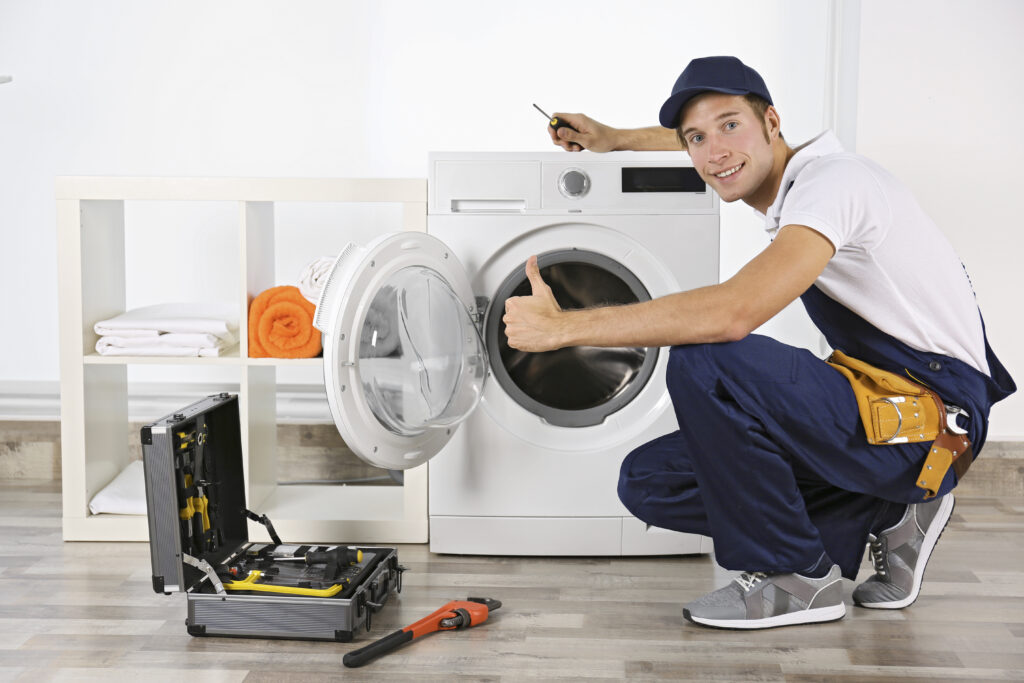Check if your appliance is under warranty or if you have an extended warranty. If the issue falls under warranty coverage, getting it repaired or even replaced might be a cost-free option. Additionally, regular maintenance of appliances can help prevent major breakdowns, increasing their overall lifespan.

Appliance Repair vs. Replacement: Making the Right Financial Decision
As homeowners, we rely heavily on our household appliances to make our lives more convenient and efficient. However, with regular use, wear and tear are inevitable, and appliances may encounter issues that require attention. When facing a malfunctioning appliance, the big question that arises is whether to repair it or replace it with a new one. Making the right financial decision in such situations is crucial, and in this blog post, we will explore the factors to consider when making this choice.
1. Assess the Age of the Appliance:
The age of the appliance plays a significant role in determining whether to repair or replace it. Most appliances have an average lifespan, and if your appliance is nearing the end of its expected life, it might be wiser to invest in a new one. For instance, if a refrigerator is over 10 years old and requires expensive repairs, buying a new energy-efficient model may be a more cost-effective choice in the long run.
2. Cost of Repairs:
Consider the cost of repairs versus the appliance’s current value. If the repair costs are significantly high and close to the price of a new appliance, it may be more practical to go for a replacement. A general rule of thumb is that if the repair cost exceeds 50% of the appliance’s value, replacement is worth considering.
3. Energy Efficiency:
Modern appliances are designed with energy efficiency in mind. Newer models often come with advanced features that help reduce energy consumption and utility bills. While your old appliance may be repairable, it may still consume more energy compared to a new, energy-efficient alternative. Factor in potential energy savings over time when making your decision.
4. Environmental Impact:
Consider the environmental impact of your decision. Repairing an appliance extends its lifespan and reduces waste, contributing positively to the environment. If the appliance issue is minor and can be fixed with minimal impact, opting for repairs aligns with sustainability goals.
5. Warranty and Maintenance:
6. Availability of Parts:
In some cases, particularly with older appliance models, finding replacement parts can become challenging. If parts are scarce or expensive, repairing the appliance might not be feasible. However, do some research and consult with repair technicians to ensure that you explore all possible avenues.
7. Personal Attachment:
Sometimes, homeowners may have sentimental attachments to their appliances, especially if they have been in the family for a long time. In such cases, the decision might lean towards repairs rather than replacement. While it’s essential to consider sentiment, make sure it aligns with your overall financial and practical considerations.
Conclusion:
Deciding between appliance repair and replacement requires a thoughtful analysis of various factors, including the appliance’s age, repair costs, energy efficiency, warranty, and personal considerations. A well-informed decision can save you money in the long run and minimize your environmental footprint. Remember to weigh the pros and cons carefully and, when in doubt, seek advice from reputable appliance repair professionals.
Making the right financial decision will not only extend the life of your appliances but also ensure that your home operates efficiently, saving you money and reducing unnecessary waste.
Remember, each situation is unique, so assess your circumstances carefully before making your final choice. Whether you decide to repair or replace, prioritize quality and reliability to get the most out of your home appliances for years to come.

